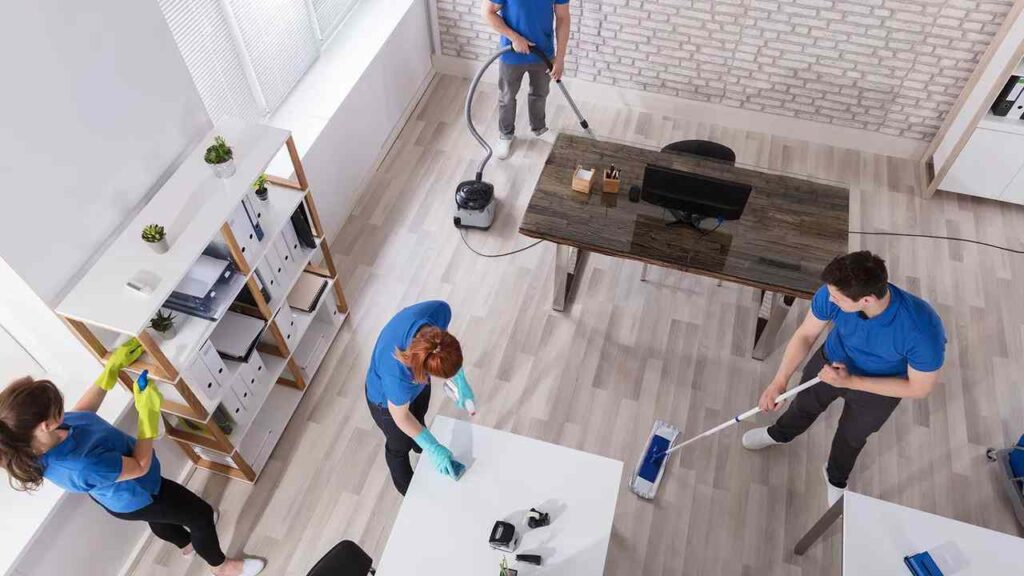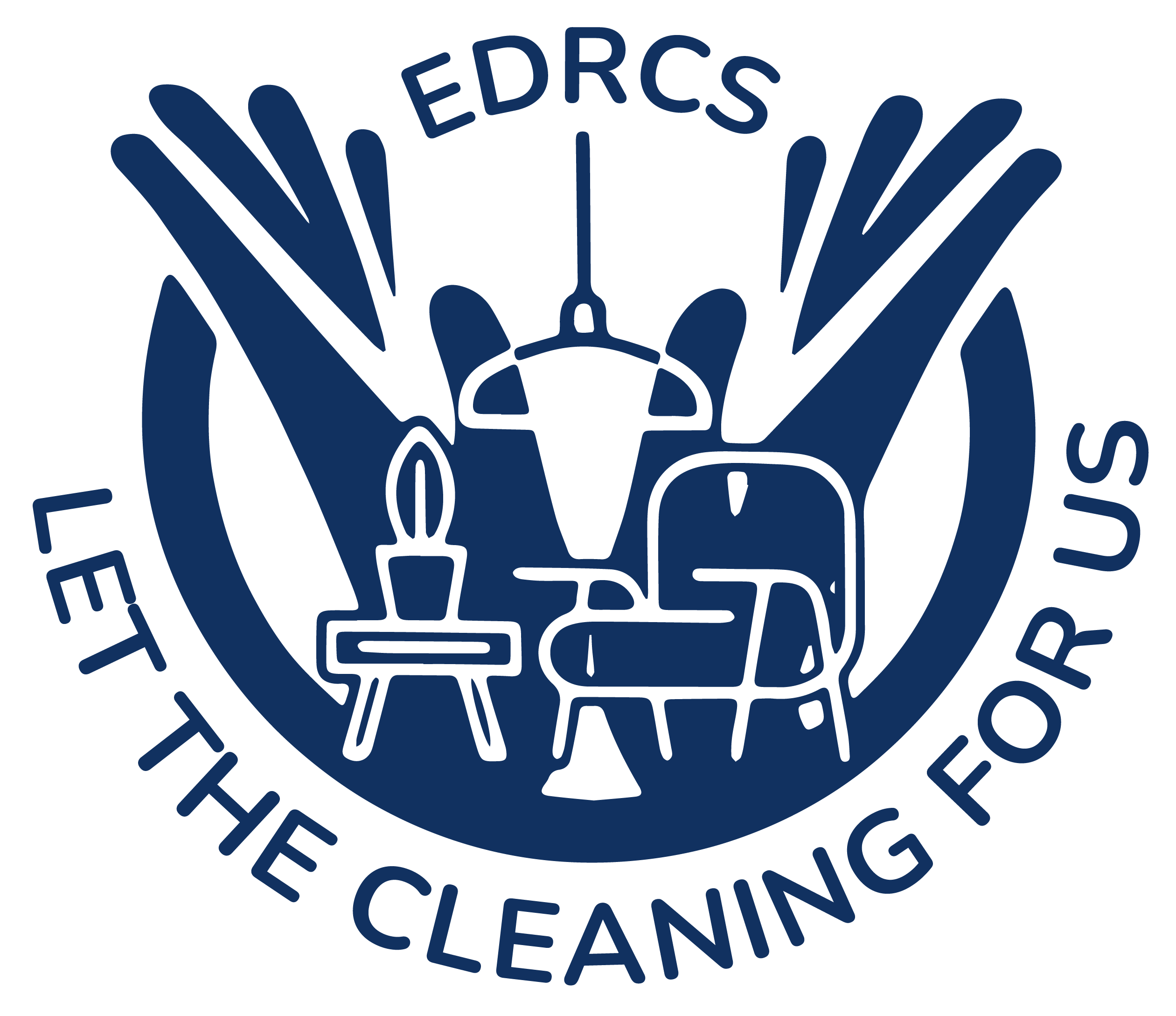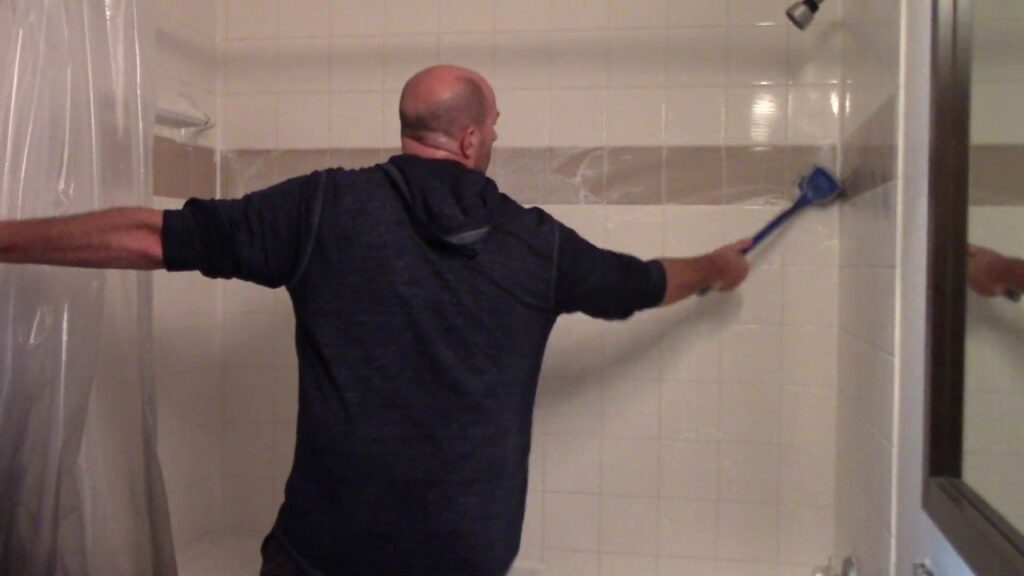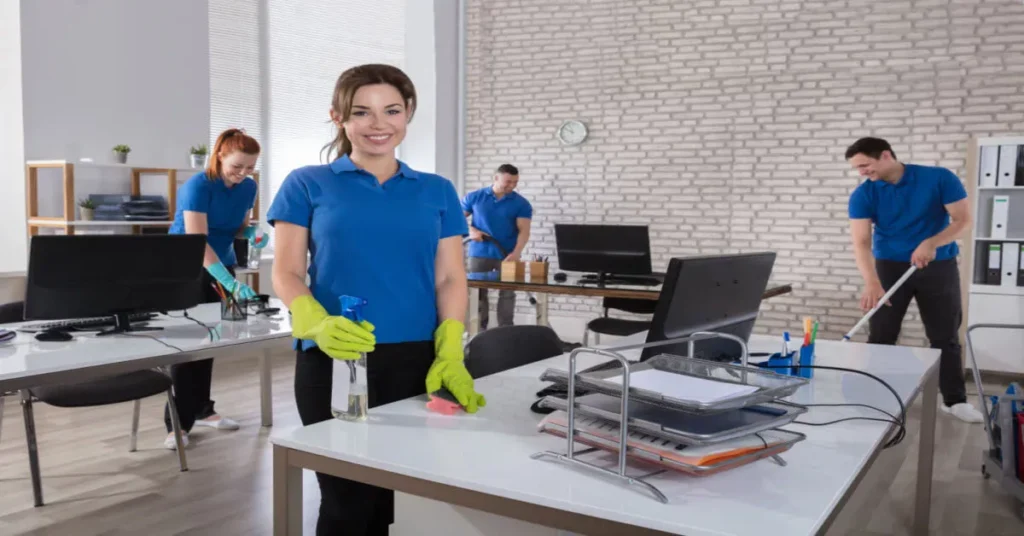Hey there, Jacksonville business owners! Keeping your office space clean is essential for both productivity and creating a welcoming environment for your team and clients. While professional cleaning services do a fantastic job at tackling deep cleaning tasks, it’s important to maintain that fresh, tidy feeling in between their visits. A clean office not only boosts morale but also helps reduce the spread of germs and improves air quality. Fortunately, you don’t need to invest a lot of time or effort to keep your workspace looking its best. In this guide and with the help of Evolution DR Cleaning , we’ll explore practical tips to help you maintain a clean office between professional cleanings.

With some simple daily and weekly habits, you can ensure your office stays organized and inviting. Regularly decluttering your workspace and wiping down surfaces can make a significant difference in the overall appearance. Plus, involving your team in the cleaning process fosters a sense of responsibility and teamwork, creating a more positive work environment. These small steps, along with scheduled office cleaning services, not only enhance the look of your office but also contribute to a healthier and more productive atmosphere for everyone.
Establish a Daily Cleaning Routine
Creating a daily cleaning routine is essential for maintaining a tidy office environment. Start by setting aside a specific time each day for cleaning tasks, ideally at the end of the workday when the office is quieter. Encourage all employees to tidy up their individual workspaces, putting away papers and organizing supplies. Simple tasks like wiping down desks, sanitizing frequently touched surfaces, and emptying trash bins can have a significant impact. Consider assigning specific cleaning duties to different team members each week to promote accountability. The transformative power of office cleaning lies in its ability to foster a positive work atmosphere. A consistent daily routine not only keeps the office looking presentable but also reinforces a culture of cleanliness and organization among employees.
Declutter Your Workspace Regularly
Regularly decluttering your workspace is vital for creating an efficient and pleasant work environment. Encourage employees to evaluate their desks and remove any unnecessary items, such as old paperwork, outdated supplies, or personal belongings that may accumulate over time. Implement a “one in, one out” policy, where new items brought into the office must replace existing ones. Additionally, set a monthly schedule for a deeper decluttering session, where teams can collectively organize shared spaces, like meeting rooms and storage areas. To ensure the safety of office equipment during cleaning, make sure to handle all devices with care and avoid using harsh chemicals near electronics.
Maintain Clean Surfaces and Desks
Maintaining clean surfaces and desks is crucial for promoting a healthy office environment. Regularly wipe down desks, tables, and other surfaces with disinfectant wipes or sprays to eliminate germs and bacteria that can accumulate throughout the day. Employees should be encouraged to clean their personal workspaces daily, including keyboards, phones, and monitors. Implementing a weekly cleaning rotation can ensure that common surfaces, such as conference tables and communal areas, receive attention too. By prioritizing cleanliness, you not only create a more inviting atmosphere but also help reduce the risk of illness, leading to improved productivity and employee well-being.
Organize Common Areas and Shared Spaces
Keeping common areas and shared spaces organized is essential for a harmonious workplace. Areas like break rooms, conference rooms, and reception areas often see high traffic and can quickly become cluttered. Designate specific spots for items like coffee supplies, office equipment, and personal belongings to minimize disarray. Regularly check and replenish supplies, ensuring that everything is stocked and accessible. Encourage employees to clean up after themselves, particularly in shared spaces like the kitchen. Establishing a routine for tidying these areas—such as daily checks or weekly deep cleans—will ensure that common spaces remain welcoming and functional for all team members.
Implement a System for Handling Paperwork
Implementing a system for handling paperwork can significantly reduce clutter and streamline office operations. Begin by establishing clear guidelines for how documents are organized, categorized, and stored. Use labeled folders or digital filing systems to keep both physical and electronic documents orderly. Encourage employees to sort through paperwork regularly, discarding unnecessary documents and archiving important ones. Consider adopting a paperless approach whenever possible by utilizing digital tools for communication and file sharing. This not only minimizes paper clutter but also enhances efficiency by making information more accessible. By having a structured system in place, you can foster a more organized and productive office environment.
Keep Cleaning Supplies Accessible
Keeping cleaning supplies easily accessible is crucial for maintaining a clean office. Designate specific storage areas for cleaning products, ensuring they are visible and easy to reach. Stock up on essential items such as disinfectant wipes, spray cleaners, microfiber cloths, and trash bags. By placing these supplies in common areas, like the kitchen or break room, employees can quickly address spills, messes, or clutter as they arise. Additionally, consider creating a checklist of essential cleaning supplies and schedule regular inventory checks to avoid running low. By making cleaning supplies readily available, you empower employees to take responsibility for their workspace and contribute to a cleaner office overall.
Encourage Team Participation in Office Cleaning
Encouraging team participation in office cleaning fosters a sense of ownership and accountability among employees. Create a culture of cleanliness by discussing the importance of maintaining a tidy workspace and how it impacts everyone’s productivity and well-being. Consider implementing a rotating cleaning schedule where different team members are responsible for specific cleaning tasks each week. This can include wiping down surfaces, organizing supplies, or managing trash disposal. Recognize and reward collective efforts, such as hosting a monthly “clean office” day, where everyone pitches in to spruce up the workspace. By promoting teamwork in office cleaning, you create a more cohesive and engaged work environment.

Schedule Regular Deep Cleaning Sessions
Scheduling regular deep cleaning sessions is essential for maintaining a pristine office environment. While daily and weekly cleaning routines can address surface-level dirt, deep cleaning ensures that hidden areas receive the attention they need. Consider hiring professional cleaning services for comprehensive tasks such as carpet shampooing, window washing, and thorough dusting of hard-to-reach spots. Depending on your office’s size and traffic, aim for deep cleaning sessions quarterly or biannually. Communicate the importance of these sessions to your team, emphasizing how they contribute to a healthier workplace. Regular deep cleaning not only enhances the overall appearance of your office but also prolongs the lifespan of your furnishings and equipment.
Maintain a Clean Kitchen and Break Area
Maintaining a clean kitchen and break area is crucial for employee health and morale. Since these spaces are frequently used, they can quickly accumulate dirt, crumbs, and spills. Establish clear guidelines for cleanliness, such as cleaning up after meals and promptly disposing of trash. Consider designating specific times for kitchen clean-up, such as after lunch or at the end of the day. Provide cleaning supplies, like wipes and dish soap, to make it easier for employees to tidy up. Additionally, regular deep cleaning of the kitchen appliances, countertops, and floors will ensure a hygienic environment. A clean kitchen not only promotes a positive work atmosphere but also supports the well-being of your team.
Monitor Air Quality and Ventilation
Monitoring air quality and ventilation is essential for a healthy office environment. Poor air quality can lead to a range of health issues, including allergies, headaches, and fatigue, which can negatively impact productivity. Regularly check and replace air filters in HVAC systems to ensure efficient airflow and filtration. Encourage employees to open windows for fresh air when weather permits and incorporate indoor plants to help purify the air. Additionally, consider scheduling routine inspections of ventilation systems to identify and address potential issues. By prioritizing air quality, you create a more comfortable workspace that supports employee well-being and enhances overall productivity.
Create a Cleaning Checklist for Your Office
Creating a cleaning checklist for your office can help streamline maintenance efforts and ensure that no tasks are overlooked. Tailor the checklist to your specific office needs, categorizing tasks by daily, weekly, and monthly responsibilities. Daily tasks might include tidying desks, emptying trash bins, and wiping down surfaces, while weekly tasks could involve vacuuming carpets, cleaning bathrooms, and organizing common areas. Share this checklist with your team, encouraging everyone to contribute to office cleanliness. By having a clear plan in place, you foster accountability and make it easier to track progress. A well-organized cleaning checklist promotes consistency and ensures your office remains a clean and inviting space.
Conclusion
Maintaining a clean office between professional cleanings is essential for fostering a productive and welcoming environment. By implementing daily routines, encouraging team participation, and keeping common areas organized, you not only enhance the overall appearance of your workspace but also promote employee well-being. Simple habits like decluttering, maintaining surfaces, and monitoring air quality can significantly contribute to a healthier office atmosphere. Regular deep cleaning sessions and accessible cleaning supplies further ensure that your office remains inviting and efficient. Ultimately, a commitment to cleanliness reflects your organization’s values and boosts morale, making it a more enjoyable place to work. By prioritizing these practices, you invest in the longevity of your office and the satisfaction of your team.
FAQs
What are some quick daily cleaning tasks to maintain my office?
Daily tasks include wiping down surfaces, organizing clutter, and emptying trash bins. These simple actions can keep your office tidy and inviting.
How often should I deep clean my office?
Deep cleaning should be done at least once a month to remove dust, dirt, and allergens. This helps maintain a healthy environment for employees.
Can I involve my employees in the cleaning process?
Absolutely! Encouraging team participation in cleaning tasks fosters a sense of responsibility and community within the workplace.
What cleaning supplies should I keep in the office?
Essential supplies include disinfectant wipes, multi-surface cleaners, trash bags, and paper towels. Having these items readily available makes it easier to maintain cleanliness.
How can I improve air quality in my office?
Regularly changing air filters, maintaining humidity levels, and introducing indoor plants can enhance air quality. This contributes to a healthier and more comfortable workspace.


